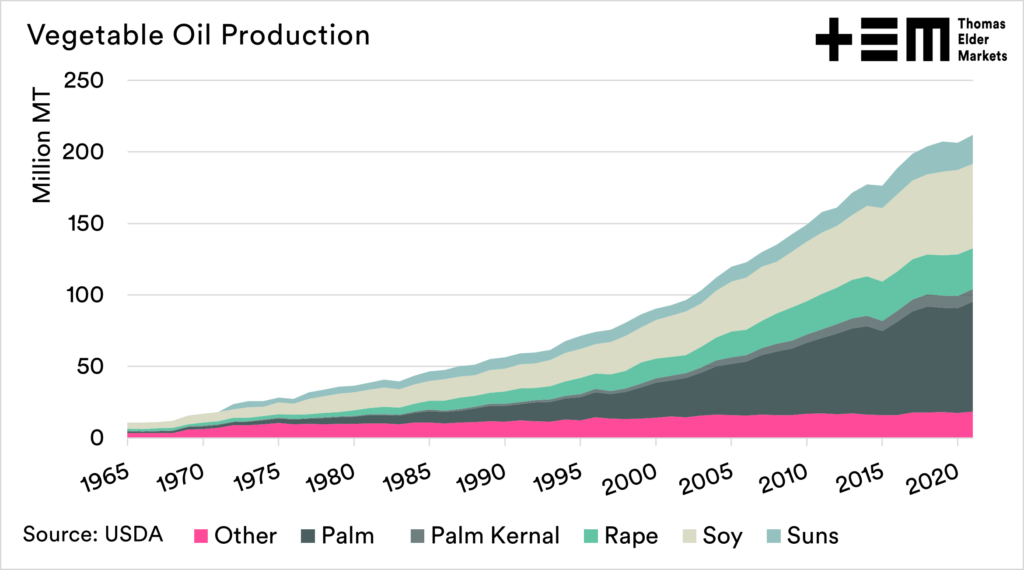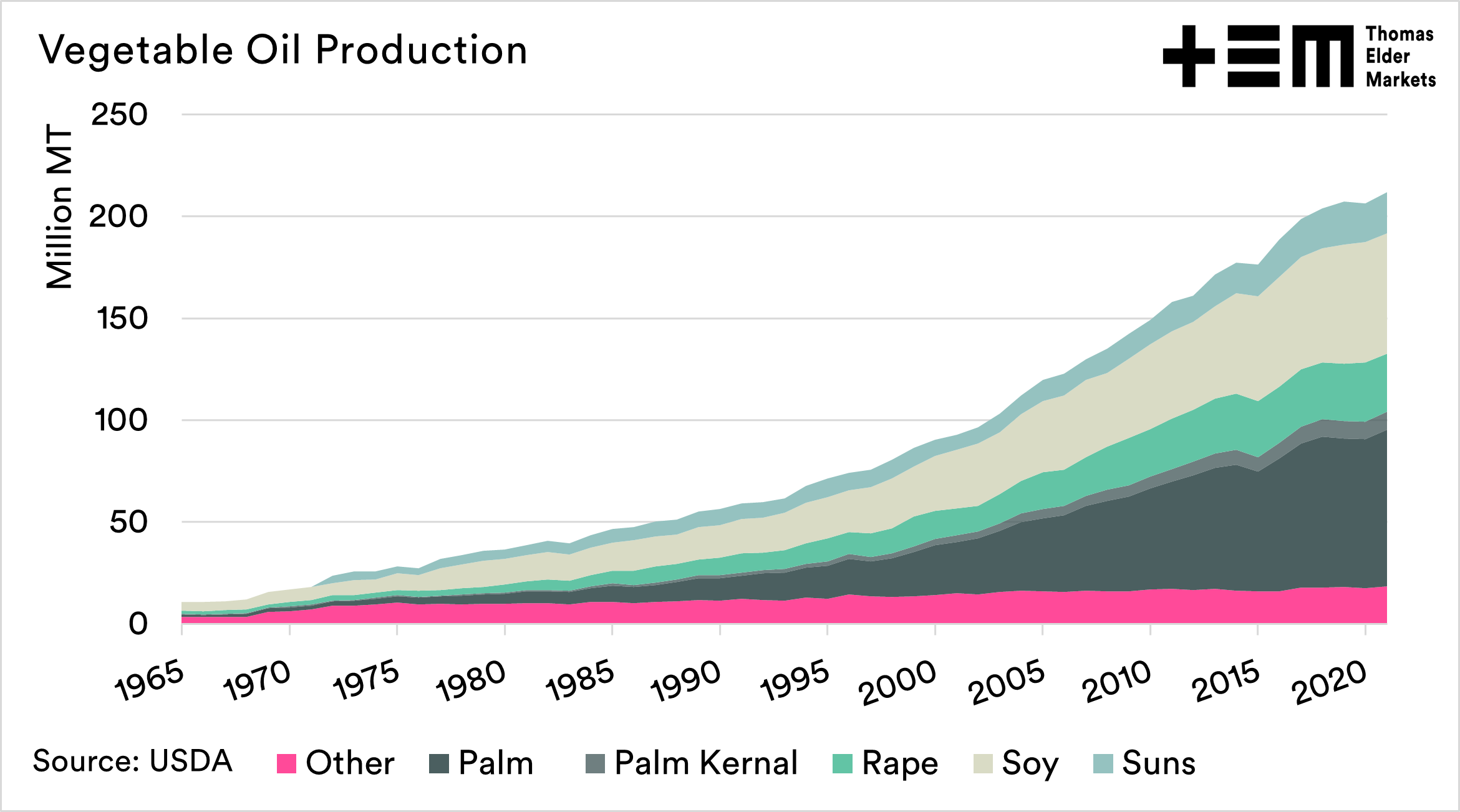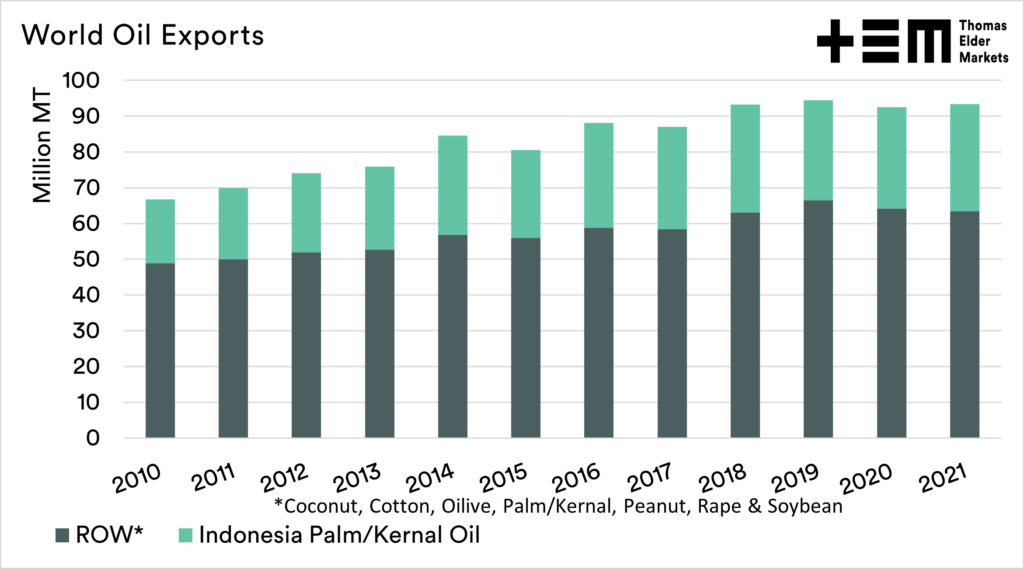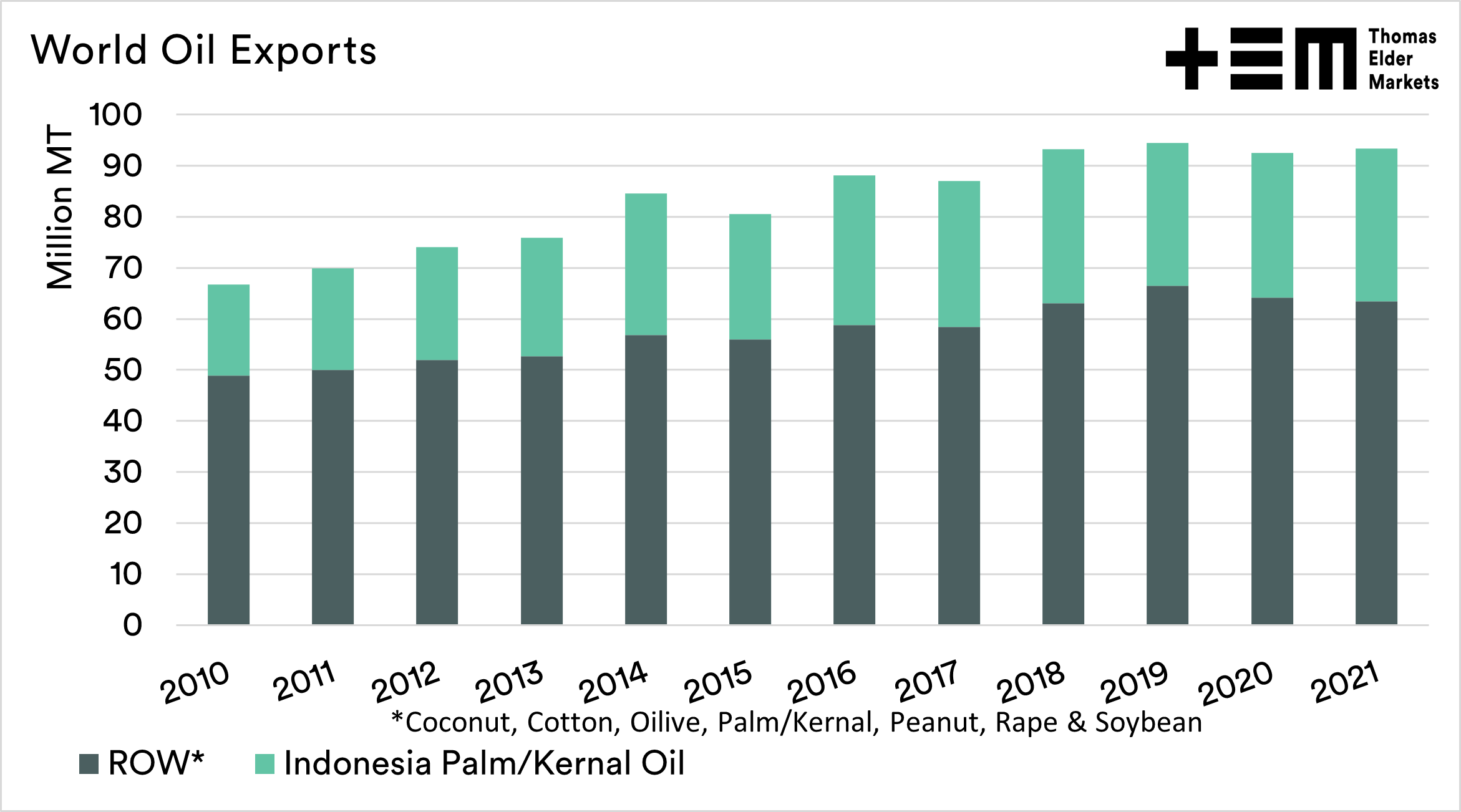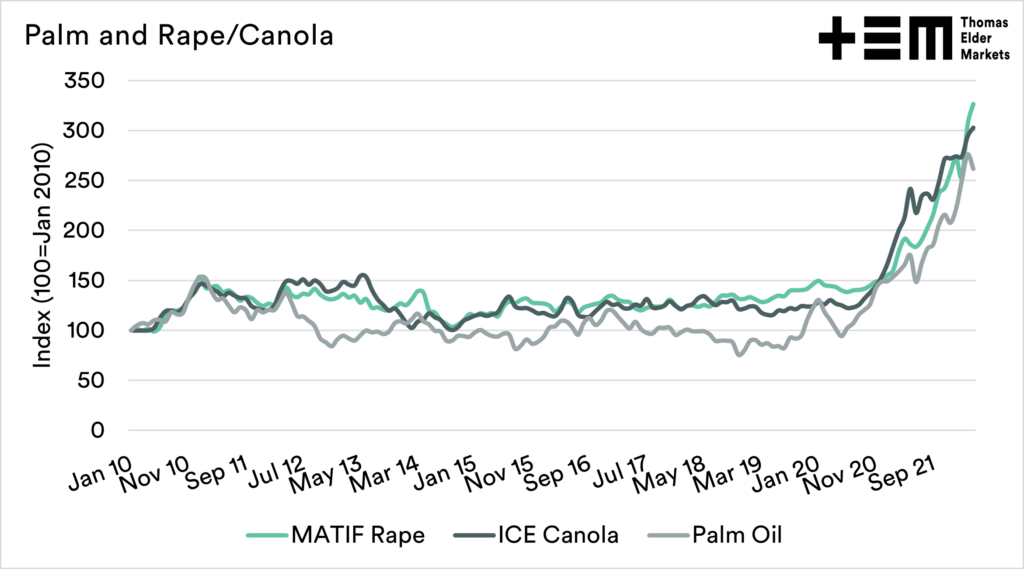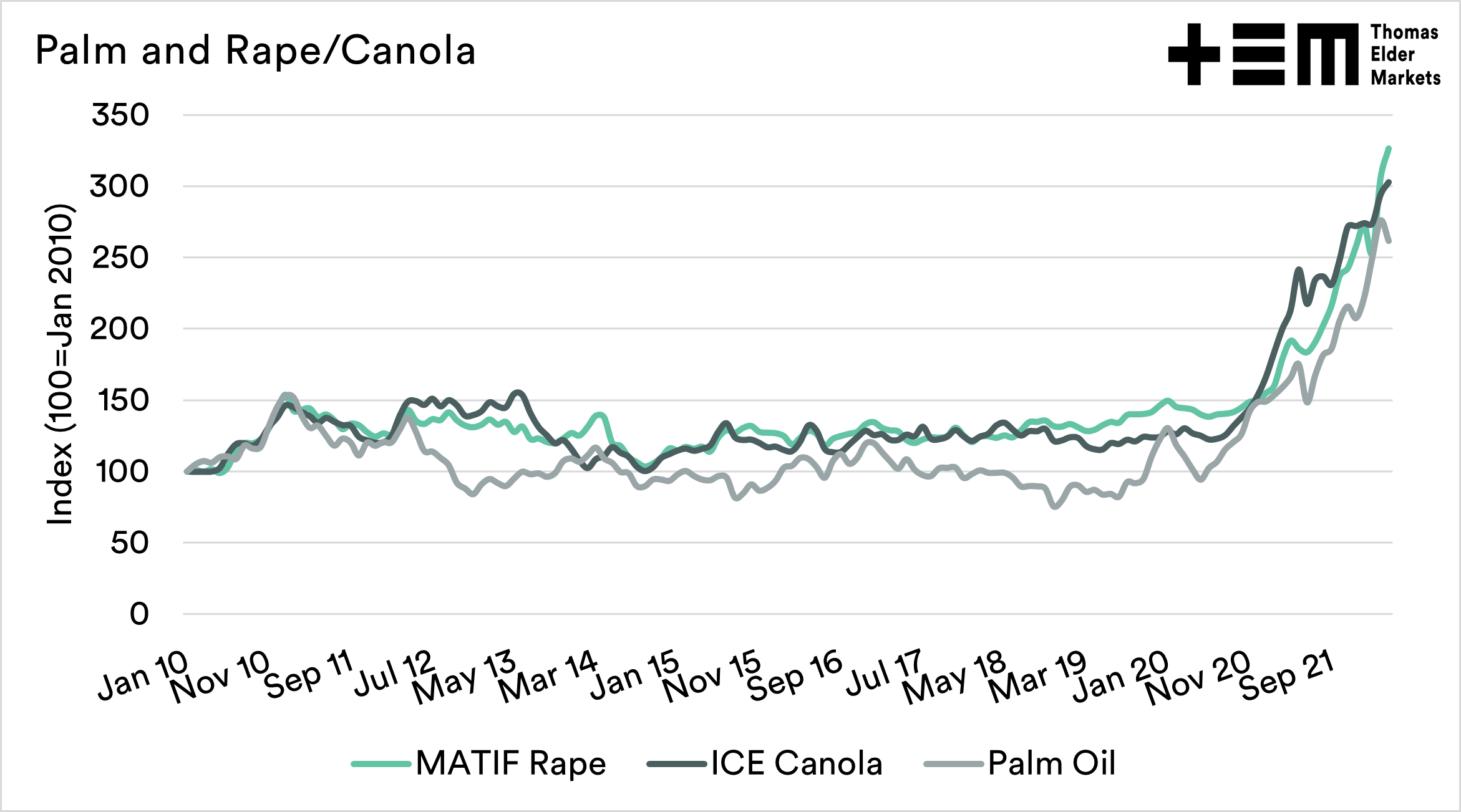Another fire under canola pricing?

The Snapshot
- Indonesia has effectively banned the export of cooking oils, such as palm.
- Palm is an important vegetable oil in terms of production.
- The world already has a tight vegetable oil balance sheet.
- This is bullish for canola as alternates are sought.
- It is unknown how long this ban will last, other than until the President of Indonesia decides that prices have become affordable for the domestic market.
The Detail
It seems that more often, I am referring back to the statement “governments shouldn’t get involved in markets”, as it appears to be occurring more frequently in the current environment. This week’s turn is Indonesia.
The Indonesian president has decided to ban cooking oils/palm oil shipments. The purpose of this is to attempt to reduce the increasing costs of cooking oil. There is no news at present on when the exports will be permitted again, other than a statement of when it becomes available.
So how and why could a ban on palm exports from Indonesia impact Australian farmers?
The chart below shows the combined production of vegetable oil since the 1960s. Palm production has grown considerably to meet both fuel and cooking oil demand.
It is the world’s most-produced vegetable oil, and the overwhelming majority of production is centred in Indonesia and Malaysia.
It is a controversial oil due to its impact on deforestation, but in reality, it is a high yielding oil, and if it weren’t for palm, larger acreages of alternate oil crops could be required to meet global oil demand. However that is a debate for another day.
The chart below shows the global trade in vegetable oils separated into world oilseeds and Indonesian palm.
Indonesian palm is responsible for a large proportion of the world’s trade in vegetable oils, and therefore any impact on the trade flows will result in a tighter global oil balance sheet.
Many food manufacturers worldwide are switching to palm at the moment to replace the sunflower oil missing due to the Russian invasion of Ukraine (here, here & here). Now one of the major exporters of palm oil is closing its doors.
Vegetable oils have a large degree of fungibility; they are replaceable with one another. The chart below shows the relationship between palm oil and rape/canola prices. I have turned these into an index starting in 2010, and we can see a close relationship between the three pricing points.
As the balance sheet for vegetable oils worldwide gets tighter, the buyers move to alternates. Therefore the removal of palm from Indonesia is supportive of canola pricing.
Markets are simple, they are based on supply and demand. If you remove a major portion of supply, then you end up with higher pricing. Let’s keep a close eye on this.
If you liked reading this article and you haven’t already done so, make sure to sign up for the free Episode3 email update here. You will get notified when there are new analysis pieces available and you won’t be bothered for any other reason, we promise. If you like our offering please remember to share it with your network too – the more the merrier.

